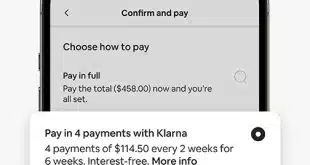By Jim Daly
@DTPaymentNews
In new court filings, Visa Inc. and MasterCard Inc. are denying the antitrust allegations that The Home Depot Inc. leveled against them in a June lawsuit. That’s no surprise, but the networks’ responses leave some arcane network fees shrouded in mystery.
Visa and MasterCard filed answers to Home Depot’s lawsuit Aug. 19 in U.S. District Court in Atlanta. In them, the networks deny the home-improvement retailer’s allegations that they set “supracompetitive” interchange rates, conspired with banks to avoid competing in the credit and debit network markets, and tried to thwart the use of PIN authentication with the new EMV chip cards in the U.S. Visa also defended its Fixed Acquirer Network Fee (FANF), which Atlanta-based Home Depot specifically asked the court to enjoin.
Home Depot’s complaint recounts much payment card legal history, but it also challenges two obscure fees that the retailer says are aimed at dissuading issuers from diverting transactions to rival networks. These fees, or volume assessments, according to Home Depot, were a new “stick” to complement the previous carrot of “inflated interchange” to ensure that issuers would be averse to routing transactions to PIN-debit networks.
One of these fees was Visa’s so-called Delayed De-Conversion Assessment, which Home Depot called a “cryptic name” for an assessment on issuers whose Visa transaction volumes or Visa-branded card numbers decline. U.S. Sen. Richard Durbin, the Illinois Democrat who sponsored the debit regulations in the Dodd-Frank Act’s Durbin Amendment, earlier this year questioned the fee, and three of his staff members met with Visa executives in May. Shortly thereafter, Visa decided not to put the fee into effect, but the company at the time did not attribute that decision to pressure from Durbin.
Visa’s answer to Home Depot sheds no new light on the fee. “Visa admits that it announced a Delayed De-Conversion Assessment, effective in April 2016, but never implemented it,” the filing says. It goes on to deny Home Depot’s allegation that an issuer would be “punished with higher fees” if it sent less business Visa’s way.
Home Depot’s complaint also alleges that “MasterCard acted in parallel fashion to Visa’s announcement of the DDCA fee by adding its own anti-routing penalties.” The retailer cites a “volume assessment” on issuers that reportedly was going up 15-fold, from 0.2 basis points to 3 basis points, in July. Home Depot said the assessment would punish issuers if debit transactions initiated on a MasterCard-branded card were routed to an alternative network.
“To the extent directed at MasterCard, [MasterCard] denies the allegations” in that section of the complaint, the network’s response says. It offers no detail.
Spokespersons for Visa and MasterCard had no further comment on the case.
What’s next for Home Depot’s suit is unclear. In civil cases, defendants in their initial answers usually ask the judge to dismiss the case, which Visa and MasterCard did in their new filings. Earlier, the card networks asked the Atlanta court to move the Home Depot case to U.S. District Court in Brooklyn, N.Y., for consolidation with the huge case known as MDL 1720. That case, which dates back to 2005, involves payment card network rules and credit card interchange. The Atlanta court has yet to decide on the transfer request, which Home Depot opposes.
The Second U.S. Circuit Court of Appeals in late June threw out the $5.7 billion settlement in MDL 1720 involving two classes of merchant plaintiffs on one side and Visa, MasterCard, and some banks on the other. The case is now back in the Brooklyn court for further litigation.
Like hundreds of other merchants, Home Depot opted out of the damages portion of the settlement. Wal-Mart Stores Inc. and The Kroger Co. also have filed lawsuits against Visa over EMV debit-transaction routing.






